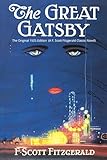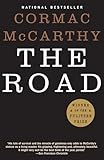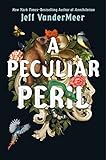Years ago, a novel-writing teacher of mine liked to ask her students, “What is the feeling you want to leave the reader with, when they finish this piece?”
The teacher was Jeanne Cavelos, the Director of the Odyssey Writing Workshop. Her question struck me as perfectly normal and legitimate, but not really central. At the time, I was writing passionately, though without a plan. Writing novels was fun, a kind of grand exploration. It was art was for art’s sake…art for my sake. I wasn’t thinking about how my work would emotionally land with readers. And shockingly, my novels—wait for it—didn’t emotionally land with readers.


 After years of writing novels that readers shrugged off, I decided two things. (1.) I really did want to reach readers. (2.) I wanted reach them the way great novels had reached me: with grand, indescribable moods. I wanted to evoke the aching, forlorn beauty at the end of The Great Gatsby; the rugged, mystic hope at the close of Cormac McCarthy’s The Road; the awesome compassion for genius on the final pages of Maggie O’Farrell’s Hamnet.
After years of writing novels that readers shrugged off, I decided two things. (1.) I really did want to reach readers. (2.) I wanted reach them the way great novels had reached me: with grand, indescribable moods. I wanted to evoke the aching, forlorn beauty at the end of The Great Gatsby; the rugged, mystic hope at the close of Cormac McCarthy’s The Road; the awesome compassion for genius on the final pages of Maggie O’Farrell’s Hamnet.
As I pondered how to do this, I came to a few core realizations.
First: great stories deliver great payoffs.
Two of my favorite narrative forms are the parable and the joke. Both are ancient and durable; the basic microorganisms of narrative. They are highly economical systems of set-ups and payoffs. In the parable, the payoff is wisdom. In the joke, it’s laughter. Anyone constructing a joke or a parable arranges a tight, sturdy story to get to the payoff as quickly as possible.
A novel, it occurred to me, is fundamentally no different. Though it’s a larger and more complex organism, capable of delivering more complicated emotions, ultimately, it’s still just an elaborate system of set-ups and payoffs.
Second: the genre determines the type of payoff.
Readers of romance, mystery, thriller, action, and horror, expect certain kinds of endings. If you don’t deliver them, beware—it’s like telling joke no one laughs at.
Knowing your ending = knowing your genre.
Knowing your genre = knowing what your reader craves.
Knowing what your reader craves = the first step in giving it to them.
Third: focusing on the final payoff is helpful in crafting the story’s beginning and middle.
If you’re going to end high, you have to start low. If you’re going to end low, you have to start high. The beginning is reverse engineered from the end. Most character arcs can be boiled down to this: “It’s a story about a character who begins at X and must overcome Y to get to Z.” But in the writing process, Z comes first. Without Z, you don’t know what Y or X must be. Without Z, you don’t have a story.
I recently got back in touch with Jeanne and told her how formative her one basic question had been. She drove her points home.
“Readers pay the most attention at the beginning and end of what they read, and most especially at the end, so what you put there is very important,” she told me. The emotion at the ending “will, in many ways, define the piece and determine what kind of story it is.”
All of this begged a question: did a novel’s final, emotional payoff have a name?
I asked a few writers.
“A reverb? A resonance?” said novelist and memoirist Jenna Blum. “Like that sound the orchestra makes and that you carry with you in your heart as you walk out of the building.”
Hmmm. So maybe…le sentiment après l’orchestre?
“We do need a word for that feeling,” said author Stephen Kiernan, “When I get to the end of certain books, I feel ruined for a while. It’s that feeling of satisfaction, and nostalgia, and fullness. It’s a feeling only a novel can accomplish.”
Then I chatted with author Jonathan Evison, who did have a name for it.
“You have to hit that last right musical note that will sustain,” Evison said, describing how he works on his own novel endings. “When you hit it, you know it, and the book doesn’t ever feel done to me until I hit it. In Hollywood they call it ‘the walkaway.’”
For the past year on my author interview show, The Thoughtful Bro, which airs on A Mighty Blaze, I have closed each of my conversations the same way. I wait until the end of the discussion, when the authors are nice and loose, then I say:
“Imagine you have an ideal reader, someone who is receiving your book in exactly the way you wish it to be received. Now imagine they have just finished the final page. In a word or a phrase, what is the feeling the reader has at that moment?”
Many authors at first seemed stumped by the question. Clearly, being able to articulate the walkaway is not a requirement for producing great books. But when they did get around to their answer, the responses varied wildly. They were funny, poignant, inspiring, and above all, revealing.



 “Like child’s pose at the end of yoga,” said Yaa Gyasi, about her novel Transcendent Kingdom.
“Like child’s pose at the end of yoga,” said Yaa Gyasi, about her novel Transcendent Kingdom.
“Sweaty and happy,” said Mark Leyner, about his latest, The Last Orgy of the Divine Hermit.
“It’s a cozy, warm feeling,” said Jeff VanderMeer, about his young adult romp, A Peculiar Peril. “You close the book in front of the fireplace, after having had a couple of marshmallows and a hot cup of cocoa.”
“It’s kind of a Mister Rogers feeling,” said George Saunders, about his work of non-fiction, A Swim in the Pond in the Rain. “I like you, and I hope you like me, and we just did something together that was kind of fun.”
Other authors hoped their readers felt “remorse,” “companionship,” “euphoria,” “a beautiful sadness,” or even the feeling of “a struck diving board—just humming.”
In the video below, you can see a compilation of writers trying to boil down what they hoped their readers felt when finishing the books they’d written. The question seems to cut to the core, for each author, of their book’s raison d’etre.
As for me, a sailor navigating the vast oceans of narrative, I now feel confident in my north star. Whether I’m introducing a protagonist on page one, keeping the arc aloft in the muddy middle, or tying up things up in the denouement, I’m constantly inching toward that final emotion, that parting shot, the reverb, the resonance, that ultimate task and unique power of the novel…
The walkaway.
Image Credit: Flickr/Robert Couse-Baker










